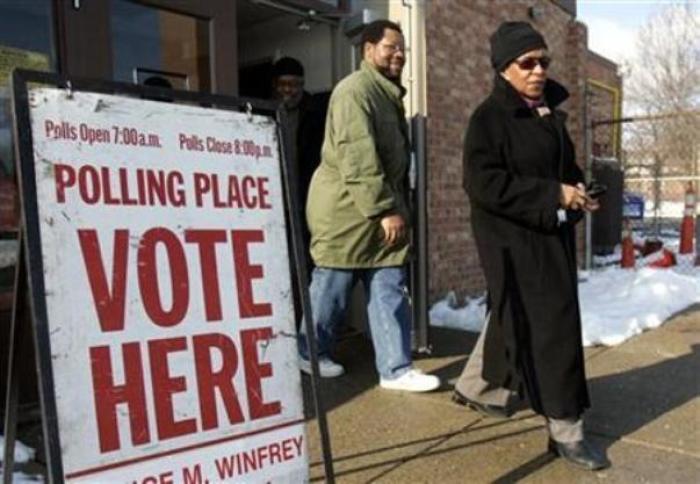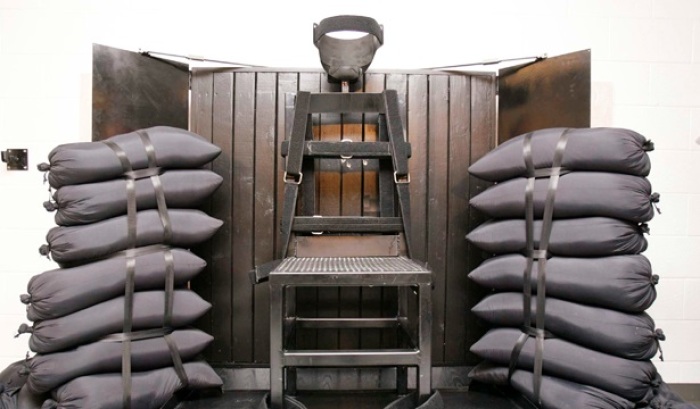3 More Things to Look for on Election Day Ballot: Casinos, Sex, Death Penalty (Part 2)

Choosing the future president of the United States of America is not the only decision voters across the nation will find themselves voting on come November 8.
For this year's election day, voters in 35 states will get to decide the fate of over 160 ballot measures on a wide range of topics.
Ballot initiatives centered on the legalization of medical or recreational marijuana, physician-assisted suicide, and the public funding of religious endeavors have already been covered in Part 1.
Below are additional ballot initiatives of interest, namely efforts to expand gambling, fight sex trafficking, and abolish the death penalty.
Casinos

Voters in three states will be determining whether or not to expand the presence of casinos and slots to various extents at the local level.
Massachusetts will vote on Question 1, which if passed will grant the state's Gaming Commission the ability to grant a slots-only license to a facility in Suffolk Downs.
New Jersey will vote on Public Question 1, which if passed will allow two additional counties to open casinos, spreading the enterprise beyond Atlantic City for the first time.
Rhode Island will vote on Question 1, which will focus on whether or not the town of Tiverton can establish a facility that would include both casino gaming and a video lottery.
Originally, Arkansas was going to be the fourth state to have a ballot initiative on the issue of gambling with its Issue 5, also called the "Three New Casinos Amendment."
However, the Arkansas Supreme Court ruled earlier this month that Issue 5 violated the federal Professional and Amateur Sports Protection Act.
"If voters had passed the issue, the Arkansas constitution would have been amended to allow casinos in the state. Washington County is one of three counties that would be allowed a casino," reported one local media outlet.
"Although the ballot title tells voters the issue would permit sports gambling, it does not mention that the amendment violates federal law. Therefore the Supreme Court ruled the title does not accurately reflect the amendment's proposal."
Safe Harbor

Voters in Georgia will decide whether to approve a measure meant to implement the previously passed Senate Resolution 7, which is meant to crack down on sex crimes and help victims of sexual exploitation.
Called Amendment 2, it is also known as the "Georgia Additional Penalties for Sex Crimes to Fund Services for Sexually Exploited Children."
"Amendment 2 was designed to trigger the implementation of Senate Resolution 7 and allow the state legislature to provide for additional penalties or fees to a court case in which a person is found guilty 'of keeping a place of prostitution, pimping, pandering, pandering by compulsion, solicitation of sodomy, masturbation for hire, trafficking of persons for sexual servitude, or sexual exploitation of children'," explained Ballotpedia.
"It would also allow the legislature to impose assessments on adult entertainment establishments. Revenue from these penalties, fees, and assessments would be allocated to the Safe Harbor for Sexually Exploited Children Fund."
SR 7 was passed during the 2015-2016 legislative session with strong bipartisan support and the pro-Amendment 2 group Safe Harbor Yes also boasts a diverse coalition.
"The Safe Harbor Fund is something that all Georgians can support. Our campaign is working hard to make sure that voters across the state know to vote yes on Amendment 2 on November 8," noted the group's website.
"It is an opportunity to create a dedicated source of funding that will provide restorative services like safe housing, trauma counseling and medical treatment to child victims of sex trafficking without raising or creating any new taxes."
Death Penalty

Voters in California, Nebraska, and Oklahoma will be considering four ballot initiatives pertaining to the death penalty.
Nebraska voters will determine the future of capital punishment in their state with Referendum 426, which if passed will overturn a 2015 law that abolished the death penalty statewide.
Oklahoma voters will consider State Question 776, which would amend the state constitution to allow for the state to perform capital punishment and set standards for it.
"In Oklahoma, although the death penalty is legal, all executions were put on hold in October of 2015 after several executions were conducted incorrectly," explained Ballotpedia.
"A review of the methods and protocols used during execution is ongoing. State Question 776 was designed, in part, to ensure that executions resume after the questions about protocol are settled."
California will decide on two different ballot initiatives on the death penalty, Proposition 62 and Proposition 66.
Prop 62 calls for the repeal of the death penalty while Prop 66 looks to reform the process for appealing death penalty convictions by making it faster.
Should both propositions get the necessary number of yes votes to pass, the one with the larger number of votes in support will be enacted while the other will not.





























